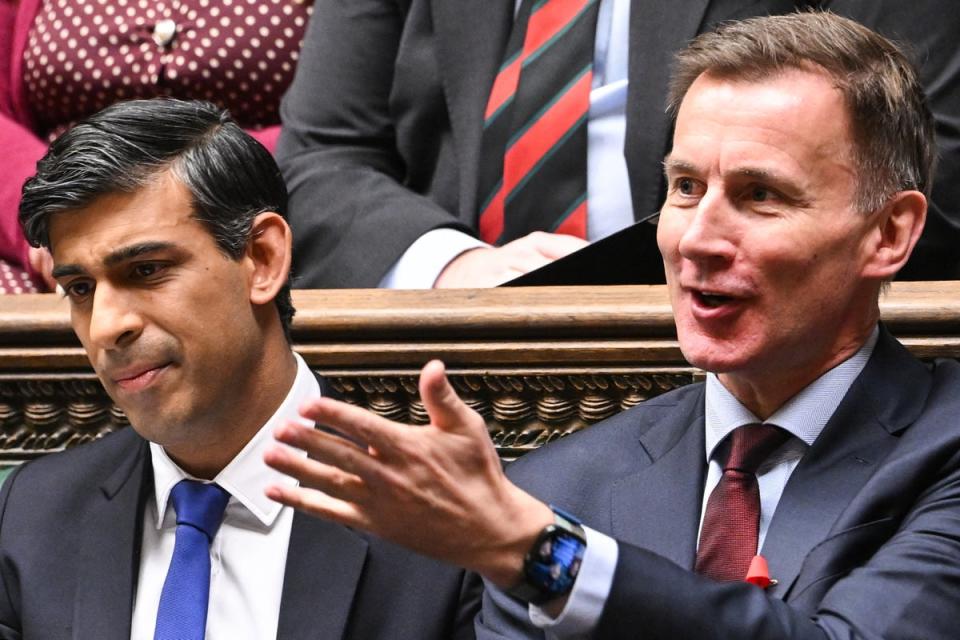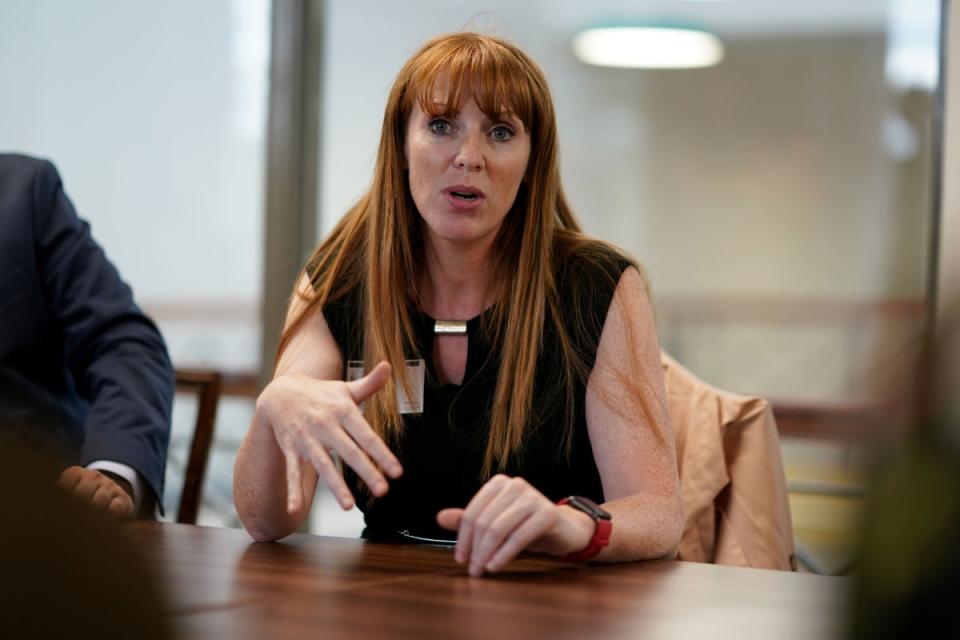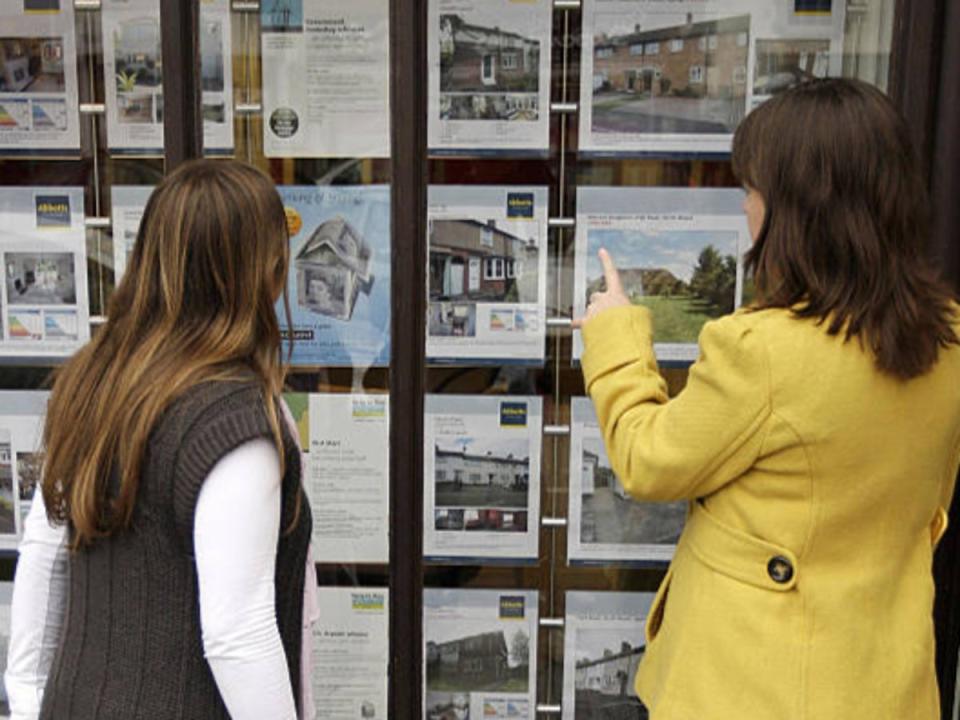Sunak considers radical plan for 99% mortgages to help first-time buyers
The government is considering a radical scheme to help first-time buyers by guaranteeing mortgages which would require just 1 per cent deposits.
The prime minister and Jeremy Hunt, the chancellor, are contemplating the bold plan to appeal to young voters struggling to get onto the property ladder, The Independent understands.
Government sources said a Treasury-backed scheme to help “generation rent” is one of the big ideas being discussed for Mr Hunt’s spring Budget on 6 March.
However, property experts warned that the “short-term political fix” could backfire by pushing up house prices without addressing the dire housing shortage.
The audacious measure would be a significant extension of the government’s previous Help to Buy scheme – which saw Britons able to purchase new build developments with only 5 per cent deposits.
Banks and building societies still typically require deposits of at least 10 per cent, sums which young renters continue to struggle to save.

But by backing lenders to create 99 per cent loan to value (LTV) mortgages – involving deposits of just 1 per cent – it would mean many renters could buy a home with a deposit of just a few thousand pounds.
Someone looking to buy a house at the national UK average of £290,000 would pay just £2,900 under the proposed government scheme.
But some property experts warned against the idea of 1 per cent deposits – arguing it could overheat the market and inflate house prices.
Jonathan Rolande, founder of the National Association of Property Buyers, warned that such a “short-term political fix” would fuel demand but do little to increase the supply of new homes.
Mr Rolande said: “In the short-term it may produce a honeymoon where some young people who could not afford to [before] get on the ladder and are very happy.
“Giving people money to go out and buy, it means they are all competing with each other for the same limited number of homes, so it will push up prices. In a few years’ time we’re back with the same problems – a shortage of housing.”
The expert said the bigger problem was that the supply of new homes had “tailed off” in recent years because of planning constraints, as well as the cost of material and labour rising.

Labour’s deputy leader Angela Rayner said the Tory government had “completely failed to address the supply of affordable homes, or lift a finger to reform our broken planning system which has forced a generation of young people to give up on the dream of home ownership”.
Asked about the Tory proposal for 1 per cent deposits, the senior Labour figure told The Independent: “The truth of this issue is that you can’t have a serious housing policy without a real plan to drive up supply.”
The Liberal Democrats’ Treasury spokesperson Sarah Olney said it “beggars belief” for the Tories to try to make home ownership an election issue “after they sent mortgage rates spiralling”.
Ms Olney was referring to the disastrous mini-Budget by Liz Truss and Kwasi Kwarteng in September 2022 which sent shock waves through the financial system and is said to have cost the country £30bn.
The Independent understands major lenders are wary of the idea of 1 per cent deposits. Because of the increased risk of defaults and repossessions, the government may have to underwrite a large part of the mortgage to cover any losses.
And while 99 per cent mortgages would help in the battle to find enough for a deposit, it would not address the issue of first-time buyers passing an affordability test for their monthly payments.
Rishi Sunak’s party is struggling to win support among younger adults. Only 10 per cent of voters under the age of 50 intend to vote Conservative at the next general election – with 60 per cent backing Labour, according to the latest YouGov polling.

Mr Hunt has been warned not to bribe voters in an election year by making moves at the March Budget which could damage the economy in the long-term.
The chancellor is said to be considering a plan to scrap inheritance tax. But economists say that the wealthiest 1 per cent would get half the benefit, with the exchequer losing up to £15bn a year.
Mr Hunt has also come under fire over his recent Budget promise to expand free childcare, as sector chiefs warn the pledge is unravelling over the “chaotic” failure to provide funding.
However, Steve Turner, executive director of the Home Builders Federation, largely welcomed the idea of a new scheme to boost home ownership.
“We would absolutely welcome interventions to assist first-time buyers. We’ve become one of the most unaffordable countries across the developed world to buy for young people,” he said.
The building industry chief added: “Builders can only build if buyers can buy. The lack of high LTV [loan to value] products on the market means demand is constrained, and as a result builders have to reduce output.”

The construction industry has criticised the government for failing to replace its Help to Buy scheme, which ended in March 2023. It saw the government lend buyers in England up to 20 per cent of the value of the property, as well as backing 5 per cent deposits.
Although Mr Hunt has continued the mortgage guarantee scheme until 2025 in a bid to encourage 5 per cent deposits, few lenders are now offering such deals for new-build developments.
“We are calling for some sort of government support scheme, in particular for first-time buyers, that will boost new-build buyers,” Mr Turner said.
The Generation Rent campaign group said it was “right” to try to boost home ownership for people with limited savings – but warned that minimal deposit schemes need to be “carefully designed”.
Chief executive Ben Twomey said Mr Hunt should take steps to “avoid flooding the market with finance that competes over a limited supply of homes”.
The campaigner said it could “push up prices and ultimately hurt the prospects of home ownership for people who continue renting”.
He also urged the government to come up with ways to help renters buy from any landlords who are struggling with high interest rates and are looking to sell. “We should have the opportunity to buy our landlord out on favourable terms.”
A Treasury spokesperson said the existing mortgage guarantee scheme providing a 95 per cent LTV mortgage “has so far enabled over 39,000 households to buy a home – over 86 per cent of which are first time buyers”.
They added: “At the autumn statement the scheme was extended for a further two years to provide additional support for first time buyers.”


